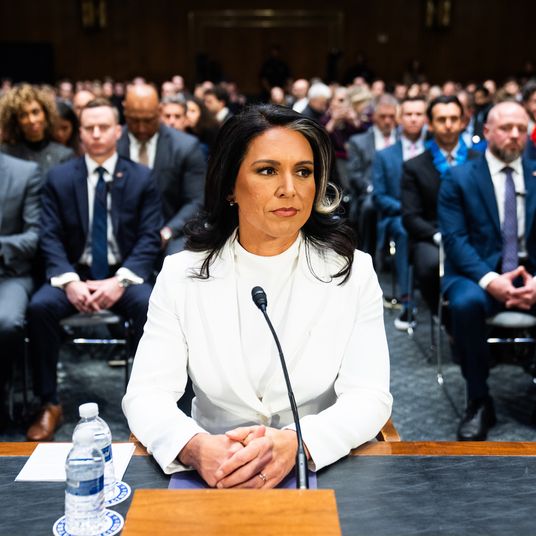
Since the U.S. Supreme Court reversed Roe v. Wade, there’s been a riotous sweep of state legislative activity. In blue states, the Roe-based fetal-viability standard — with exceptions for later abortions in certain cases — has generally prevailed. And in red states with Republican trifectas, the big trend has been toward total or near-total (six-week) bans. Some red states have at least initially moved toward the 15-week standard set in federal legislation Republicans pursued in the past (based on the highly dubious medical theory that this is when some fetuses can experience pain). But since that standard would make all first-trimester and some second-trimester abortions legal (including an estimated 95 percent of current abortions), that won’t satisfy anti-abortion activists and lawmakers.
And that gets to the basic problem of any abortion “compromise,” much as professional centrist scolds seem to think it’s just a matter of fanatics agreeing to let reasonable people cut a deal. There is no natural point of compromise between people who believe abortion is a matter of fundamental reproductive rights and people who believe the fetus has a right to life that negates all of a pregnant woman’s rights. As a man who is in the former camp, moreover, I do not regard myself as having the moral standing to negotiate or bless any sacrifice of women’s rights in the name of “compromise.” But where on the spectrum of possible state laws would such a compromise most likely land?
The Atlantic’s David Graham thinks North Carolina’s new 12-week abortion ban, with “exceptions for rape and incest up to 20 weeks, and for fetal life-limiting anomalies up to 24 weeks,” might make the state “a pioneer for a compromise approach to the abortion issue” that could “defuse the issue” or instead “could also fail to satisfy either side of the debate.” The 12-week standard would accommodate first-trimester abortions, but barely and with significant questions about feasibility and implementation. Legislators came up with the 12-week ban, pretty clearly because it was the strictest ban that could command the legislative supermajority needed to override a veto of the legislation by Democratic governor Roy Cooper. Indeed, it’s possible Republicans went to 12 weeks rather than something more draconian to avoid excessively embarrassing party-flipper Tricia Cotham, whose vote made it possible; earlier this year, Cotham voted with other Democrats to codify the fetal-viability standard and exceptions set out by Roe.
So before even contemplating the 12-week ban as a “compromise,” it’s appropriate to anticipate that if they gain as much as a seat or two in 2024, North Carolina Republicans may go back to the well for a total or near-total ban like those in place in most of the South (Alabama, Arkansas, Florida, Georgia, Kentucky, Louisiana, Mississippi, and Tennessee, with legislative leaders trying to do the same in South Carolina).
But let’s say the 12-week ban stays in place long enough to be viewed as a “compromise.” Is it a “reasonable” compromise between diametrically opposed beliefs about fundamental rights, if there is any such thing? Arguably the most natural compromise was reflected in a poster that hung on the cubicle wall of a co-worker of mine some years ago: “Oppose abortion? Don’t have one!” But the laws of raw political power suggest that efforts to ban abortion will be with us for the foreseeable future anywhere Republicans have the ability to work their will. So the utilitarian approach would be to preserve as many abortion rights as possible. All else being equal, a 15-week ban is better than a 12-week ban, which is much better than a six-week ban. Perhaps public opinion would find that “solution” tolerable for a time, but it’s an illusion to believe that the law and politics of reproductive rights will stand still.
Besides, it must be remembered that a solid majority of public opinion (nationally and in most states) favors the 24-week fetal viability (with exceptions for later abortions) set out in Roe v. Wade, reflecting, as the Court said then, a compromise between a woman’s privacy rights and the government’s interest in protecting “the potentiality of life.” Compromising those rights even more will never settle well with pro-choice Americans, and abolishing them entirely will always be the goal of the forced-birth movement and its political allies.
More on life after roe
- ERA Ratification Is Now Up to Trump’s Supreme Court
- The Unlikely Reason RFK Jr. Could Be Rejected by the Senate
- Project 2025’s Mastermind Is Obsessed With Contraception






























